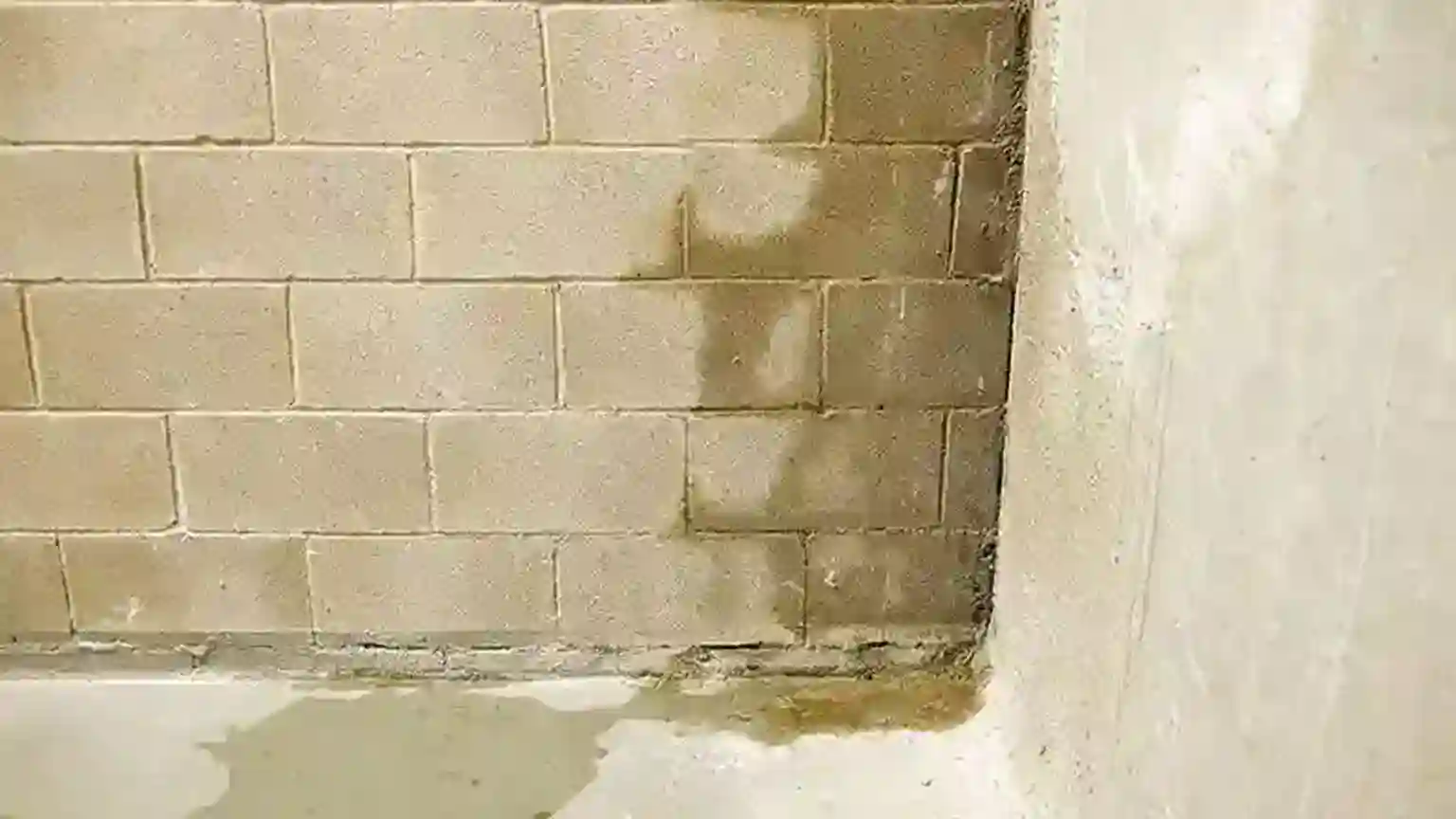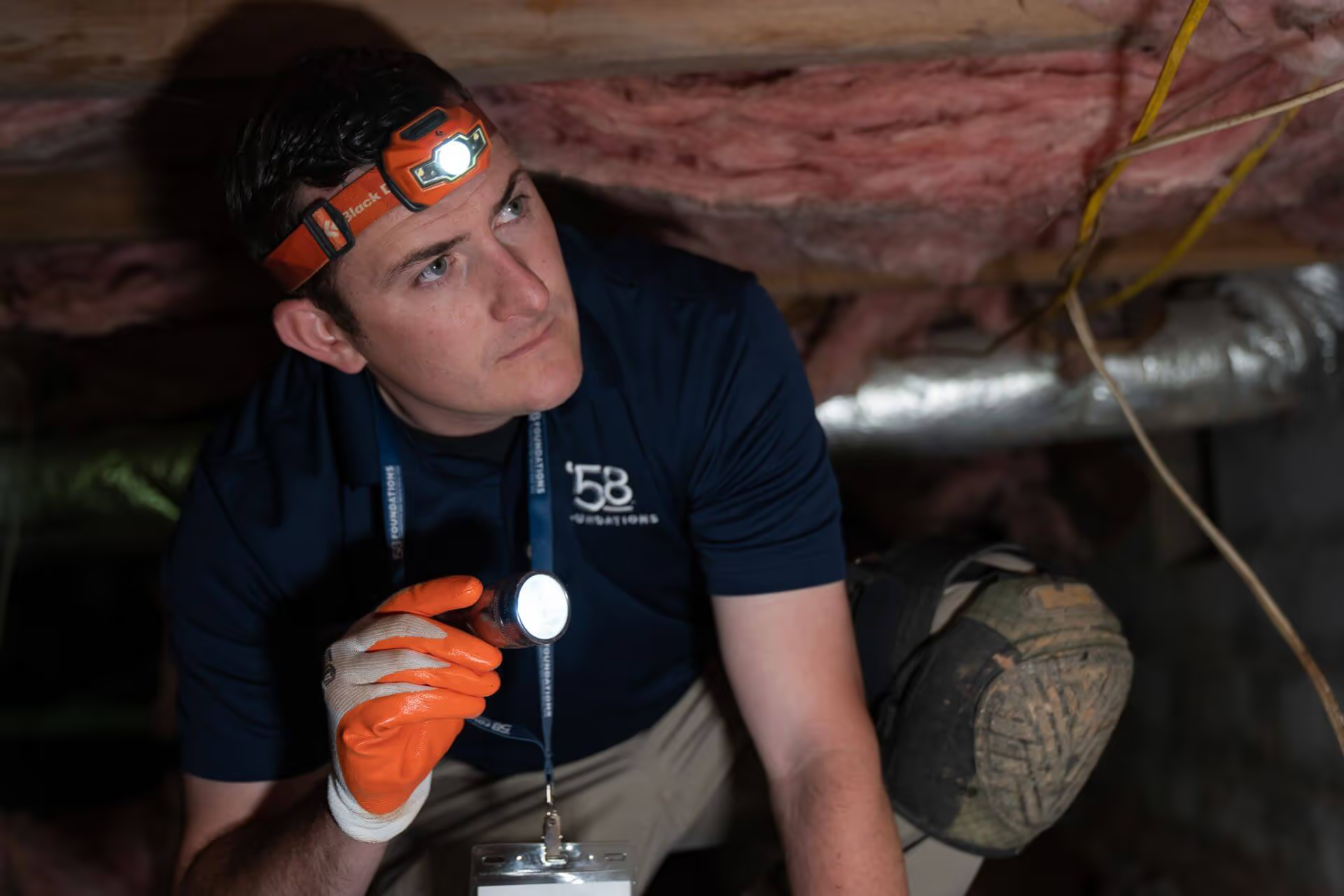
It happens to many homeowners. A crack in your basement wall may seem harmless at first. What’s wrong with a little humidity in the crawl space, right? But either of these scenarios can be a sign of more trouble ahead. Especially when there’s heavy rain, a lot of water can begin to soak into the soil around your home. When the collective weight of that water and soil presses against the walls of your foundation, that hydrostatic pressure can lead to cracks, eventually creating a pathway for groundwater to enter your basement or crawl space. If allowed to continue, that water leaking into your lower-level space can lead to further damage of your home’s structure and it can even draw pests and encourage mold growth. But with the proper measures, you can help your basement or crawl space remain dry, safe, and useable!
Let’s take a dive into some methods to protect your basement or crawl space from invading moisture!
While both have their own unique needs, whether you have a basement or a crawl space, there are some things that you should take into consideration for either one. Taking measures to keep water away from your foundation can help prevent moisture from infiltrating your basement or crawl space. Here are a few ways that you can do this whether you have a basement or a crawl space:
Along with the measures suggested above, there are other measures that you can take to protect your basement. A lot of damage to your foundation walls occurs because of there being too much water sitting against the foundation—the tremendous amounts of pressure can lead to basement wall cracks and bowing walls.
So, taking measures to divert that water away will help relieve the hydrostatic pressure and take the stress off your foundation walls. This is where waterproofing comes into play.
Basement waterproofing can involve a variety of measures, but they usually involve the installation of French drains, sump pumps, drainage pipes, and even a vapor barrier or a dehumidifier if the situation calls for it. Along with waterproofing measures, it’s also important to seal any gaps in your basement where pipes may run to the outside.
Should your basement wall or basement floor have cracks that are leaking, it is also important to have those cracks repaired so that water has no easy way into your basement. With the proper foundation repairs done in conjunction with your basement waterproofing, your basement will be kept protected against groundwater intrusion.
Crawl spaces are a little different from basements. Meant to act as a barrier between your home and the earth beneath it, usually crawl spaces just have a dirt floor where moisture can potentially seep up. From water seeping up through the soil when the water table rises to moisture creeping in through crawlspace vents, crawl spaces lacking the proper waterproofing or encapsulation can become humid or flooded and cause problems for you and your home.
For some crawl spaces, you may just need to seal your crawl space vents and install a durable vapor barrier. But for others that may be in areas that experience a lot of heavy rains, it may be necessary to waterproof your crawl space along with your crawl space encapsulation. Here are some of the measures that might be required to keep moisture out of your crawlspace…
You may also need to seal any gaps that exist around any piping that’s going out through the crawlspace wall. But with these measures in place, your crawlspace will be kept secure against moisture, which can benefit both your house structure and your air quality.
It may seem like a crack in your basement floor or a little humidity in the crawl space is okay to overlook, but these are both signs of moisture threatening to invade your home, or it’s already in the process. When moisture is allowed to enter your lower-level and wreak havoc, it can lead to further problems such as:
Preventing moisture from entering your lower level not only saves your home from damage, but it also benefits your health, wellbeing, and comfort. Allowing any of these problems to take place can lead to additional costs to repair and return your home to normal.
With the global climate changing, the way that rain comes and goes is also changing. As reported by USA Today in January 2022, in regions “East of the Rockies, more rain is falling, and it’s coming in more intense bursts.” Heavier rain seasons in certain parts of the United States are becoming more commonplace, and many of those regions are not properly prepared. The same USA Today article mentions that “a dozen states, including Iowa, Ohio and Rhode Island, saw five of their 10 wettest years in history over the past two decades”.
With many states experiencing unprecedented amounts of rain, it is more important than ever to be prepared for that water eventually finding its way to the soil around your home. By having your basement or crawl space properly waterproofed, you can help keep all that water moving out and away from your home, giving you a better chance at protecting your home’s lower level from groundwater intrusion.
Since 1958, ’58 Foundations & Waterproofing has been helping homeowners like you keep moisture out of their lower levels, so that their homes can remain safe, dry, and healthy places to be. With over 60 years of experience in developing the quality products and honest methods that we use today, you can rest assured that we’ll keep groundwater moving out and away from your home, keeping your lower level dry and helping preserve the value of your home against water-related damages to your foundation and lower-level space. Give us a call today to schedule for a free inspection of your foundation and lower-level space. We’ll be happy to provide you with a detailed cost estimate and answer any questions you may have!
People haven’t just made the planet hotter. We’ve changed the way it rains.






We respect your privacy. By submitting, you authorize '58 Foundations and Waterproofing to reach you via call, email or text for information about your project needs. We will never share your personal information with third parties for marketing purposes. You can opt out at any time. Message/data rates may apply. Consent is not a condition of purchase. Privacy Policy